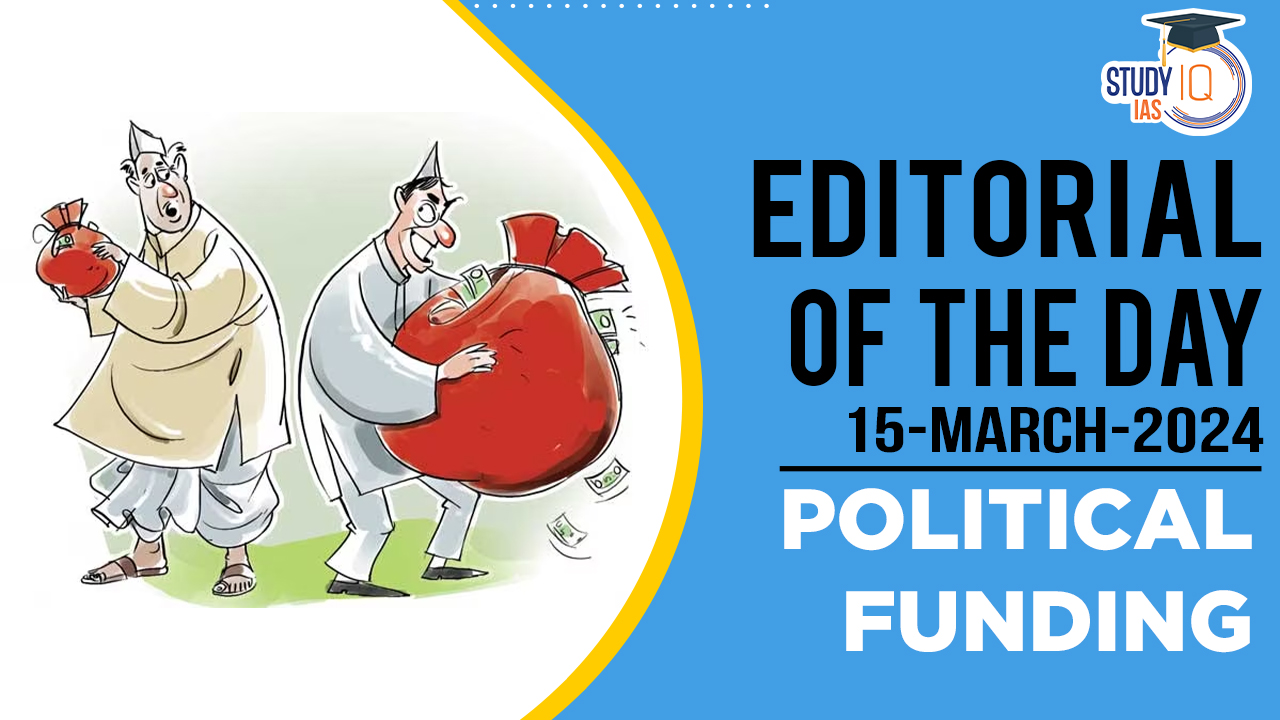Table of Contents
Political Funding Background
- Supreme Court Verdict: Declared the electoral bonds scheme unconstitutional and mandated SBI to provide relevant data to the Election Commission.
- Public Disclosure: The Election Commission is set to make the data public, raising questions about potential improprieties among corporate donors and recipients.
- Donor-Recipient Matching: SBI acknowledged the possibility of matching donors to recipients by June, which could clarify the existence of any quid pro quo.
- Influence on Elections: The issue of political financing is significant due to its impact on the integrity of democracy.
Past Political Funding and Transparency
- Historical Opaqueness: Before 2018, 70% of political donations were made in cash, and only donations above Rs 20,000 were reported to the EC.
- Income Tax Rebates: Such reported donations qualified for income tax rebates upon EC verification.
- Post-Electoral Bonds Secrecy: The introduction of electoral bonds brought complete secrecy over political donors and recipients.
We’re now on WhatsApp. Click to Join
Alternatives to Electoral Bonds
- Indrajit Gupta Committee Proposal: Recommended partial public funding of political parties contingent on internal democracy.
- State Funding of Elections: Mentioned as a potential solution, but it has drawbacks like the rise of non-serious candidates.
- Funding Based on Electoral Performance: Proposes state funding of political parties based on votes received at Rs 100 per vote.
Enhancing Transparency and Integrity
- Auditing Party Accounts: Political party accounts should be audited by independent auditors from a panel provided by the EC or CAG.
- National Election Fund: Suggested as a repository for corporate and private donations with income tax benefits.
- Protection from Reprisal: The fund would prevent corporate donors from facing harassment by ruling parties.
Global Practices and Feasibility
- International Models: According to a study, 71 nations provide state funds to political parties based on vote counts.
- Prevalence: This funding model is widespread in European, African, American, and Asian countries.
- Applicability to India: The success of this model in various countries suggests its potential effectiveness in India.
Moving Forward
- Public Cost Justification: Argues that the expense to the public is justified by the benefits of honest and transparent governance.
- Possible Cess Solution: Suggests implementing a small cess, like one paisa per litre of petrol, to fund political parties.
- Electoral Trusts: Existing trusts lack transparency, with the Reuters report revealing serious issues.
- Need for Debate: Calls for a discussion on the future of political financing and the operational details of the proposed solutions.


 Graphic Processing Units (GPUs) – Work...
Graphic Processing Units (GPUs) – Work...
 Gold Imports and the Indian Economy – ...
Gold Imports and the Indian Economy – ...
 Nilgiri Tahr Conservation: Ecology, Habi...
Nilgiri Tahr Conservation: Ecology, Habi...




















